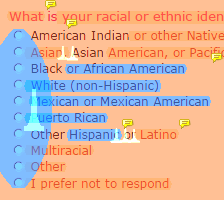Kenneth Burke wrote an essay in 1973 essay on “The Rhetorical Situation” affecting the United States at that time in history. What he says about the Gross National Product, inflation, and taxation enlighten us about the power of rhetoric in the hands of economists, legislators, accountants, and lawyers.
The term “Gross National Product” identifies our whole economic structure in sheerly monetary terms. Probably, in the next few years, you will see many indications that here, too, is an essential aspect of the Rhetorical Situation in which we find ourselves. The very profusion of sheerly monetary transactions will force us to realize the ways in which the identifying of an economy in monetary terms can be illusory. (The most obvious example is the fact that mere inflation shows up as a corresponding increase in the G.N.P.)
In the meantime, among the most influential rhetoricians of our world today are surely our experts in the manipulation of monetary terms.
Thus, accountants can show things at their worst, if it’s taxes you would avoid. Or they can show things at their best, if you would promote stock sales on the basis of reports listing profits present and prospective.
High among such masters of unsung eloquence are those legalists who, on behalf of their clients, deliberately add loopholes to tax laws, a form of inducement so quietly persuasive that invention of this sort is totally alien to the stylistic excesses of what was once caused Asiatic oratory. Indeed, it is couched in language as severe as a medical diagnosis or a laundry list; yet when the address is over, lo! an individual or even a corporation with earnings up into the millions need pay less taxes (if any!) than the lowliest of wage-earners.
But hold! Once we started to track down the foibles of legal corporations in their roles as “persons,” we’d find a whole new set of persuasive marvels opening up. So I desist.
Thus we see that an entire economic structure can be collapsed into an intellectual synechdoche and logical fallacy; that quiet yet powerful persuasion may inhere in tax laws devoid of stylistic excess; that legal corporations employ the language of personhood in ways that are not merely metaphorical. Clients and governments convince themselves of what is financially bad or good, better or worse, based on economic professionals’ selective use of data.
Thus over time and use of this rhetoric a society builds up forms of persuasion and intellectual shortcuts and facades. The situation expects or even encourages such rhetoric from its professional class.
The fact that such communication is now formulaic or obvious does not mean it lacks rhetorical intent, function, meaning and power. On the contrary, it has become even more powerful because of its invisibility and normalcy.
- Burke, K. (1973). The rhetorical situation. In Communication: Ethical and moral issues (Ed. Thayer, L.), pp. 263-275. New York, NY: Gordon and Breach. On Google Books at https://books.google.ca/books/about/Communication_Ethical_and_Moral_Issues.html?id=Ksi_G7oXQdgC&redir_esc=y




